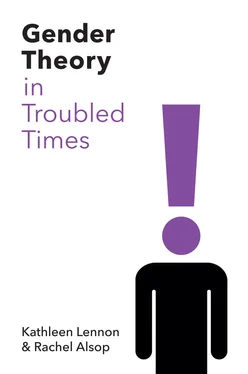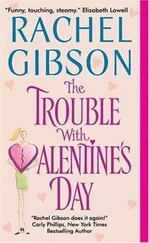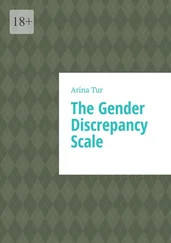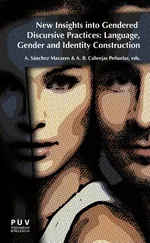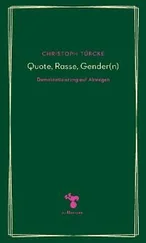The current discussions are sometimes conducted in terms of who is and who is not a real woman or man (Murray 2017). These discussions often revisit those aired within second-wave feminism concerning whether any people who were born with/retain/retain traces of what we currently think of as male bodily morphology can appropriately be thought of as women. (We should, of course, expect that, whatever the salient considerations are here, they should also allow us to consider the question of whether any of those who were born with/retain/retain traces of what we currently think of as, female bodily morphology are appropriately considered men.) Many of those resistant to the acceptance of trans women as women are reverting to conceptions of sexed identity as fixed by biological roles in reproduction or bodily morphology. But this move relies on a discredited biologism, which feminist biologists (see for example Fausto-Sterling 1993, 2000) have themselves made problematic, and which we discuss and reject in chapter 1. But not all gender essentialists place the essential identifying features in biology. Others see these as anchored in shared experiences, including shared experiences throughout life of being oppressed as a woman. Some would suggest that we cannot capture the distinctive form of oppression directed against women as women if we allow into the category women those who have spent part of their lives considered by others to be men. 3
The possibility of telling a single story about the nature and basis of women’s oppression, however, dissolves with the recognition that discrimination works not homogeneously but in an intersectional way (Koyama 2006). It matters to the nature of the oppression we suffer what the other mutually constituting categories in play might be. As discussed further in chapter 5, for instance, the oppressions which black women face are informed by the intersections of being black and female (an intersection which is further complicated by interconnections of class, sexuality, dis-ability, age, and so on). For all of us, our experiences and our identities are intersectional, particular and diverse. Trans women may share certain oppressions by virtue of being trans but also share other forms of discrimination with women who are not trans. ‘You don’t need to have ovaries to have sometimes felt scared walking in the dark, and those who were assigned a female gender at birth are not the only ones with #MeToo stories to tell’ (Hinsliff 2018a). The most cursory attention to trans narratives and hate crime statistics will dispel any sense that to grow up with gender identity misplacement is to grow up privileged (Whittle and Turner 2009). ‘“It is held against me that ‘you were raised with male privilege’, but actually I was beaten up all the time for being effeminate,”’ says Clara Barker, a trans scientist at the University of Oxford …. “Because I was trans I was severely depressed, I was bullied in my workplace, so it’s like, ‘What privilege is that?’”’ (Hinsliff 2018b).
The claim that being female consists in some specifiable set of shared experiences, including experiences of oppression, has been found wanting by critical race theorists, disability theorists and decolonial feminists (hooks 1984; Collins 1990; Garland-Thomson 1997; Lugones 2010), who point out that there are no universal sets of experiences that all women share and no single model of oppression. These considerations make clear that, while there will often be discriminatory practices concerning some women being women, which do need to be addressed, they will not necessarily include all women. Period poverty, abortion, issues of pregnancy and childbearing, treatment of the menopause and issues to do with ageing will be some of these issues, as will, for example, medical issues concerning the health and well-being of trans women. Keeping women safe from physical harm, sexual assault and murder is key across the board.
We would argue that there are no general conflicts of interest between cis women and trans women as collective groupings. Practices of exclusion, abuse, violence and discrimination are endemic to both, and we need to make common cause to protect and enhance the lives of all through dialogue and coalition-building. But there are some striking features about the debate. One is the lack of insight which some feminist women show about the lives and experiences of those who may, in many different ways, be gender non-conformist. With this lack of insight comes a tightening of the boundaries around what is required to be a proper woman, a privileging of some experiences (Phipps 2016), and a reinforcement of the binary man/woman. But it is the grip of this binary which is the source of violence and dislocation suffered by many groups, including those for whom neither side of the binary currently offers a comfortable resting place. And there is the urgent issue of the distress of gender non-conforming children. Children can find the pressures to conform so tough that they are earlier and earlier seeking escape from their assigned sexed identity to explore what currently seems the only other one on offer. Such children need society to let them be , to position themselves on the gender spectrum where they will. This will not be achievable while the position of their adult counterparts remains policed.
The structure of this book
This book offers a set of key theoretical resources which we regard as necessary if we are to grasp what is involved in falling under the categories ‘man’ or ‘woman’ or related categories. It offers theories which try to make sense of the process of becoming gendered in terms of both social position and lived experience. We show our hand, of course, in talking of becoming gendered as a process rather than as a matter which is simply settled when we are born. We deal these theories out like a pack of cards in separate chapters, at the same time as signalling the way in which, for us, they are interwoven.
We start by paying attention to what Beauvoir calls the data of biology , looking at the work of feminist biologists and contemporary new materialist feminists to evaluate the role which the biological body plays in determining our gendered classifications and the consequent psychological and behavioural patterns that attach to them. We reject a naturalizing account which regards biology as determining a binary division into sexed kinds and a consequent set of social divisions. Nonetheless the biological body is part of the story here, and we follow new materialist feminists in assigning importance to it.
We then turn our attention in chapter 2to the psyche , specifically the development of sets of sexed psychological identifications, as a consequence of what is made of bodily difference and the significance attached to it, in both intimate familial and more public, cultural settings. The theorists we look at here are the founding fathers of psychoanalysis, Freud and Lacan, and some of the feminist sexual difference theorists who interrogate, challenge and make use of their work. Using critical race theorists, we also compare how this work is made use of in theorizing sexed difference and in theorizing raced difference. We highlight the important concept of the imaginary, which has its origin in this psychoanalytic work. Again, we resist an account which sees a necessary binary sexual division within individual psychic development and public symbolic structures. But the theories we consider provide crucial resources for making sense of the processes of developing a gendered sense of self – a sense of self which results from what is made of bodily difference privately and, interconnectedly, within the public imaginary.
The third chapter turns from the domain of the biological and the psyche to the domain of economic and social structures. Drawing on Marx’s historical materialism, Marxist feminists and socialist feminists interrogating the interweaving of capitalism and patriarchy, we show how gendered positionality structures the possibilities for, and outcomes of, engagement in the social world. These points are illustrated by data concerning the differential position of men and women in contemporary societies. What happens to us, as women and men, is conditioned by the material and economic structures of the historical and geographical locations in which we are placed. These are very variable. But gender affects the ways each of them is organized. Part of what it is to be gendered is to be positioned in particular ways in these economic and social structures, as well as in the linguistic structures and social imaginaries discussed in the previous chapter. There is no universal account of these structures. Patriarchal consequences are achieved in multiple ways, even when we confine ourselves to exploring the interweaving of class and gender. But we also note, drawing from black feminist thought and theorists of disability, that the workings of these structures cannot be articulated by restricting ourselves to class and gender. Moreover, post-colonial and decolonial feminists have long stressed the ways in which capitalism and patriarchy require the history of colonial exploitation and its contemporary legacy. We return to this discussion in chapter 5.
Читать дальше
